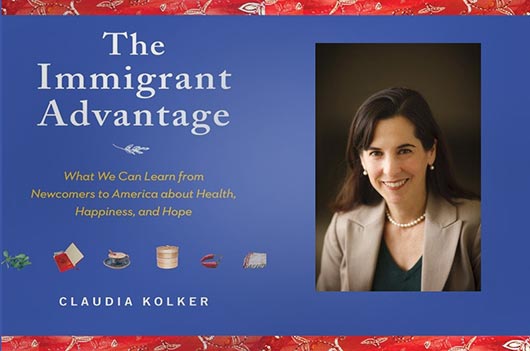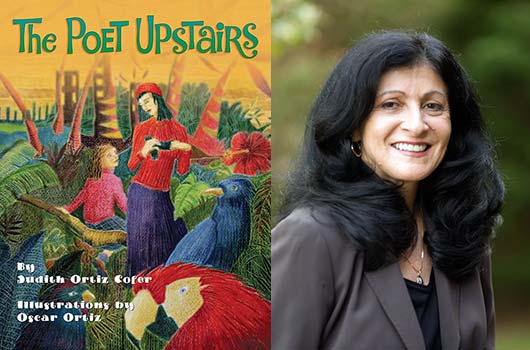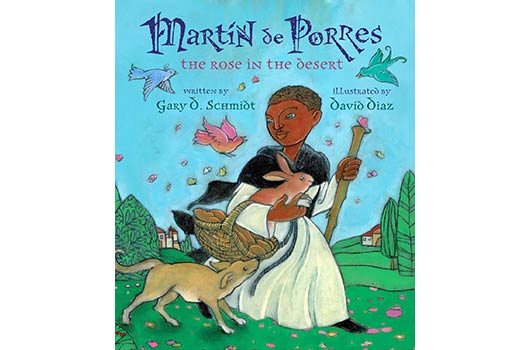
For immigrants, living in the U.S. is a precious opportunity to learn about new cultures and their traditions. Beyond the struggle to adapt to a new language or certain values in the American culture, this is a welcoming country, a “melting pot” that offers a space to share traditions from our places of origin and become familiar with others coming from faraway lands. Lately, the conversation about immigration has become highly polarized and politicized. In her new book, The Immigrant Advantage, journalist Claudia Kolker brings the conversation back to the benefits and positive influence of immigration, and provides a much-needed and very refreshing outlook.
Backed with practical advice and first-hand research, Kolker, a seasoned journalist and editorial writer, invites us to investigate the customs that immigrants have successfully brought with them and that could be useful to enrich the health, education and even the finances of American households. With vivid anecdotes and examples, the book illustrates how certain customs have helped newcomers from South Asia to Africa not only adapt, but also get ahead. Some of the most interesting examples include Korean after-school programs, Jamaican multi-generational households, Vietnamese savings clubs and the Mexican Cuarentena, or 40 days rest for a new mother.
Mamiverse recently had the opportunity to chat with Kolker about the book and her research.
Mamiverse: This is interesting timing for you book with the discussion about immigration policy being so polarized. Tell us about your research criteria.
Kolker: The book came out last year. I didn’t design it to be part of the immigration reform conversation so much as the health reform conversation. First generation immigrants are healthier according to many health markers, including longevity. Everybody wants to know how to have more resilient babies or how to get the best of public schools. I purposely left out religion, even though it is very important in the immigration experience. Religion is not a very easily transferable practice.
Read Related: Emmy-Winning Jorge Ramos Joins in Twitter-Talk on Immigration & Latinos in America
Mamiverse: During your research, what were the hardest obstacles and experiences you heard about?
Kolker: The most common obstacles, and this is only from my view point, are loss, trauma and loneliness. A lot of immigrants are refugees and came here out of desperation. A lot of their minds are with the things and people that they left behind. People carry around a lot of grief and pain. And loneliness. It’s so lonely to be an immigrant here. It can be very lonely being an American. It’s not an easy society to connect with in a lot of ways. If you are used to calor humano, human warmth, it can be really hard.
Mamiverse: As a reporter, what was the most exciting and the most challenging in writing this book?
Kolker: It was just fun. I had the joy of living for days with a Jamaican family in New Jersey. They were so much fun, ate so well, and they were so ambitious; the grandma was great. I really enjoyed that community and the importance of every generation in that community.
The most challenging was getting into the community, waiting for six weeks to connect with some people. People are private about their private lives and they protect their families. I like the experience of being an outsider and trying to connect with an insider. One commonality I found very interesting is that the people I met were all great storytellers; they´d tell you a story from beginning to end. In these communities, storytelling is a social skill.
Mamiverse: From your own background as daughter of Jewish-Mexican parents, what has been your most valuable custom? What do you think will be the most important for your daughters?
Kolker: My parents taught me to ask, ask, ask and visit and see. It’s such a joy to learn and see how people live. More is more. There’s no downside to learning about how people enjoy themselves, and you can get such a pleasure from learning about other cultures. My dad learned Spanish from my mother, she diagrammed the grammar on the back of a napkin (so) he could have a conversation with my grandmother. My mother never converted and no one ever pressured her to do it, but she is the keeper of the Jewish traditions.
One of the great things that I picked up working and writing about immigrants and do try to pass on to my kids is that we are lucky. We are lucky because we live in a country where we can make choices, and their choices can be different from mine. This needs to be honored and respected.
Mamiverse: What do we do well in the United States?
Kolker: We fight discrimination against women and we aspire to end it. Also, Americans are very generous outside their own tribe. We are the world champs for reaching out outside our own communities to help. Foreigners who come here learn that from us. When I was doing the research with the Cuarentena, in Ohio, many men were taking care of their wives; they got the message that it was a very good thing in this country. I was proud that they picked that up.










